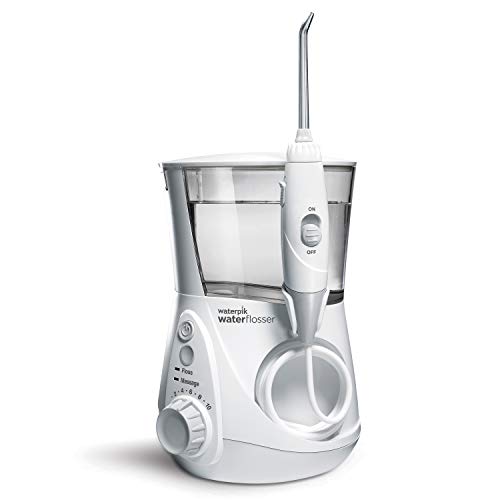
Underlying causes of bleed between teeth when you floss could result from plaque or wrong use of floss. You may experience bleeding teeth when you attempt to remove buildup by flossing or brushing.
When buildup or plaque is not regularly removed, it may turn into hard tartar and eventually lead to decay and bacteria exposure; removing this hard buildup may irritate the gums and lead to bleeding gum. The improper use of the tool can cause bleeding as well.
what after-effects of gum bleeding during flossing
In most cases, it can get your gums swollen, lose their pink color, and the teeth will start to pull away.
Since the gums are soft tissue that covers your jawbones and the roots of your teeth, they can easily become irritated.
Healthy gums should gently hug your teeth to create a seal that keeps bacteria at bay.
The tooth gums are naturally pink, and they don’t bleed when you floss or brush your teeth properly; bleeding can only occur when there is bacterial buildup.
If you are one of those few people who notice bleeding gums sometimes when you floss or blush, it is due to Gingivitis bacteria from the food you eat, which turns into sticky plaque that builds up on your teeth or gums.
In the long run, you easily avoid these bleeding gums or teeth problems by flossing adequately and cleaning the mouth regularly to prevent germ buildup that would cause inflammation that might damage the tooth wall.
Is it normal for gums to bleed while flossing?
Gums bleed when flossing due to buildup removal, so there is nothing to worry about.
You just need to clean your mouth to remove leftover food particles that can generate buildup or bacteria. A rare reason could be poor flossing techniques when cleaning the mouth.
How do I stop my gums from bleeding when I floss?
You can use lukewarm water with a pinch of salt to rinse your mouth immediately when you notice bleeding after flossing.
However, the most common reason for bleeding gums when you floss is bacteria and plaque buildup; swishing lukewarm saltwater around the gum can stop the bleeding.
Saltwater will stop the bleeding immediately and help reduce oral germs. Once you notice bleeding after flossing or brushing, rinse your mouth with warm salt water, it will stop bleeding instantly.
Can flossing loosen teeth?
Yes. Improper flossing can cause your teeth to lose and fall out. Most enthusiastic flossers use a saw-like motion to get their teeth as clean as possible.
This act of the wrong floss can wear your gum and lead to tooth loss.
The abrasive cleaning of the mouth can wear through the tooth’s enamel and can even result in oral periodontal bone loss in a very extreme case.
Therefore, flossing improperly can cause your teeth to lose and fall off.
Can flossing remove enamel?
Yes. Aggressive flossing can remove the enamel. However, while flossing is vital to your oral, don’t be too aggressive in your flossing habits to avoid wearing.
A study has shown that flossing too hard or vigorously can eventually cause damage to the gum tissues and pull off the enamel of the teeth. In the long, if you don’t floss correctly, you can harm your overall oral health.
How long do you have to floss before gums stop bleeding?
Your bleeding gum may stop bleeding after 3-10days. As a beginner, you might be wondering how long to floss to get used to the tool.
You have to floss according to your user’s manual to get used to it once you are used to it. With proper flossing, you won’t experience any more bleeding, except you have been suffering from a gum infection.
Can your gums bleed by flossing too hard?
Yes. You can hurt your gum by flossing too hard, which can lead to bleeding. Flossing too hard can bruise the gum line and then result in bleeding.
However, if you floss for more than the required time in a day, it will hurt your tooth wall and expose the teeth roots to infections.
So excess flossing can also result in bleeding from pressing too hard on your gum, and you inadvertently dig underneath your gumline with the tool when you floss too hard.
Will my gums stop bleeding if I keep flossing?
Fortunately, your gum will adapt when you floss regularly for 3-10 days. As a beginner, you are likely to experience bleeding gum during your flossing routine, but don’t stop your teeth will get used to it and then won’t bleed anymore.
Though it happens in rare cases and usually stops after a week or less, kindly consult your dentist for further advice if bleeding persists.
Is it ok if my gums bleed when I floss?
It is ok to floss as a beginner. When you start a flossing routine, it’s normal to experience some light gum bleeding that will stop once you adapt to the tool.
There is nothing to worry about as a flossing beginner; just follow your instructions correctly the bleeding will stop within a few days.
How long do bleeding gums take to heal?
The bleeding might stop within 3-10 days, but the gum will heal and adapt to the flossing tool for 2-4weeks.
However, the longer time it takes your gums to heal depends on the severity of your gum bruise during the cleaning process.
There will always be a mistake as a new user, and improper use is inevitable until you have mastered it; then, there will be no bleeding.
What is the home remedy for bleeding gums?
Here are some home remedies for bleeding gums;
- Apply a cold compress around the after flossing. moving an ice pack around your gums
- Use lukewarm saltwater to rinse the mouth after flossing; add a pinch of salt to the warm water.
- You can also press a wet bag of green tea against your gums for 5minutes.
How do I prevent gum from bleeding after flossing?
- Keep good oral hygiene; Bleeding gums can result from poor mouth hygiene.
- Try to rinse your mouth with hydrogen peroxide once to kill gum germs.
- Limit smoking
- Ensure to increase your intake of vitamin C and eat healthily.
- Try to increase your intake of vitamin K.
Can your gums bleed without flossing or brushing?
Yes. If your gums are bleeding and inflamed even without flossing or brushing, this indicates that you have gum problems or pick your teeth a lot with toothpicks.
The teeth wall is very sensitive and can easily get inflamed when you use the tool inappropriately, and it can cause the gum to bleed.
Top 3 Picks Professional Water Flosser
Final words
However, if you notice bleeding gums when flossing, this may be a sign of gum irritation due to the improper handling of the cleaning tool.
If your gums bleed when flossing properly, continue flossing, don’t stop; your mouth will adapt to it, and the bleeding will go away sooner than you think.
Most new users will stop flossing when they experience bleeding, which is wrong; your mouth needs time to adapt to the tool; don’t be scared.
But if the bleeding persists for 3-10days, then you might be suffering from gum disease and need to consult your dentist for proper advice.
References
6 Reasons Why Gums Bleed When Flossing
https://sherwoodparkdental.ca/6-reasons-why-gums-bleed-when-flossing/
10 Ways to Stop Bleeding Gums










